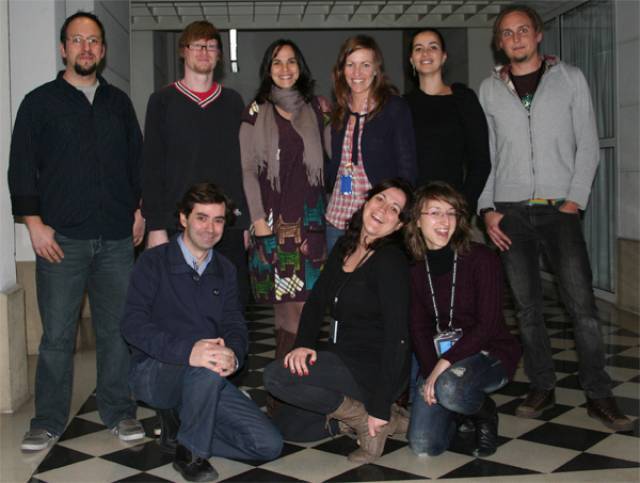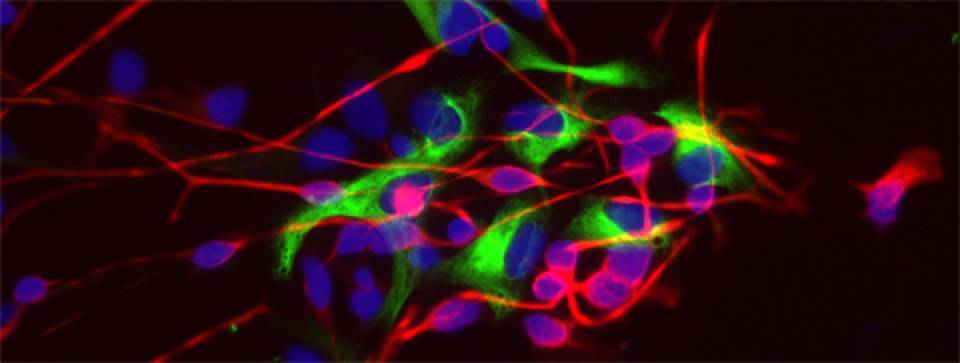These researchers, who drive the Cell Therapy Program (TCUB), found new differentiation factors that participate in converting embryonic stem cells into neurons. Now, thanks to financial support from the CHDI, they will apply these findings in the production of neurological tissues in the laboratory for testing new drugs against Huntington's disease. The project will be done in coordination with the laboratories of Dr. Elena Cattaneo, from the University of Milan, and Dr. Nick Allen and Dr. Paul Kempten, from the University of Cardiff.
The financial contribution has already been used to hire two post-doctoral researchers, a technician and a student. After the summer their experiments will be moved to the new facilities for production clinical cells that meet all the GMP quality standards, funded by the Ministry of Economía y Competitividad. These new facilities will be located in a part of the Faculty of Medicine that IDIBAPS is reforming thanks to a sponsorship of the Cellex Foundation.
Thanks to new staff, the new spaces and the hiring of services by the CHDI IDIBAPS’ researchers will work in the production of striatum neurons from embryonic cells. The process of differentiation into neurons takes approximately three months. Defining a production protocol is one of the main objectives of the project. Initially it will be focused in healthy neurons. Later it will be able to produce neurons affected by Huntington's disease, and will allow experiments to discover new factors involved in the differentiation process.
These cells will be used to replace the current animal models used in the study of drugs, thus obtaining an experimental model much closer to human Huntington's disease. These cells can come from both preimplantation diagnosis embryos discarded during in vitro fertilization, or from induced pluripotent fibroblasts similar to embryonic cells.


